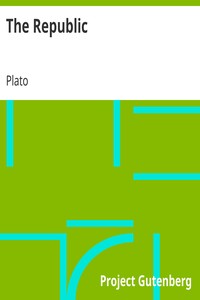The Republic by Plato
"The Republic" by Plato is a philosophical treatise written in the 4th century BC. The work explores the nature of justice, the ideal state, and the role of the philosopher within society. Through a series of dialogues featuring characters such as Socrates, Thrasymachus, Glaucon, and Adeimantus, Plato investigates what justice means and how it can be achieved both on an individual and societal level. The beginning of "The Republic" sets the stage
with Socrates engaging in a conversation about justice, starting with Cephalus and transitioning to Polemarchus and Thrasymachus. Their discussions weave through definitions of justice, the characteristics of the just man, and the relationship between justice and power. Initially, Cephalus offers a traditional view of justice as truth-telling and debt-repayment, but Socrates methodically challenges this notion by presenting various exceptions and situations where such definitions fail. The opening chapters highlight the complexity of defining justice while introducing key themes that will permeate the dialogue, such as the interplay between the just and the unjust, the potential for immorality in political power, and the distinctions between appearance and reality in ethical behavior. (This is an automatically generated summary.)
Read or download for free
| How to read | Url | Size | |||
|---|---|---|---|---|---|
| Read now! | https://www.gutenberg.org/ebooks/150.html.images | 794 kB | |||
| EPUB3 (E-readers incl. Send-to-Kindle) | https://www.gutenberg.org/ebooks/150.epub3.images | 324 kB | |||
| EPUB (older E-readers) | https://www.gutenberg.org/ebooks/150.epub.images | 336 kB | |||
| Kindle | https://www.gutenberg.org/ebooks/150.kf8.images | 564 kB | |||
| older Kindles | https://www.gutenberg.org/ebooks/150.kindle.images | 520 kB | |||
| Plain Text UTF-8 | https://www.gutenberg.org/ebooks/150.txt.utf-8 | 699 kB | |||
| Download HTML (zip) | https://www.gutenberg.org/cache/epub/150/pg150-h.zip | 318 kB | |||
| There may be more files related to this item. | |||||
Similar Books
About this eBook
| Author | Plato, 428? BCE-348? BCE |
|---|---|
| Translator | Jowett, Benjamin, 1817-1893 |
| Title | The Republic |
| Note | Reading ease score: 70.3 (7th grade). Fairly easy to read. |
| Note | There is an improved edition of this title, eBook #55201 |
| Note | Wikipedia page about this book: https://en.wikipedia.org/wiki/Republic_(Plato) |
| Language | English |
| LoC Class | JC: Political science: Political theory |
| Subject | Political science -- Early works to 1800 |
| Subject | Utopias -- Early works to 1800 |
| Subject | Justice -- Early works to 1800 |
| Category | Text |
| EBook-No. | 150 |
| Release Date | Jul 1, 1994 |
| Most Recently Updated | Jan 1, 2021 |
| Copyright Status | Public domain in the USA. |
| Downloads | 440 downloads in the last 30 days. |
| Project Gutenberg eBooks are always free! | |

